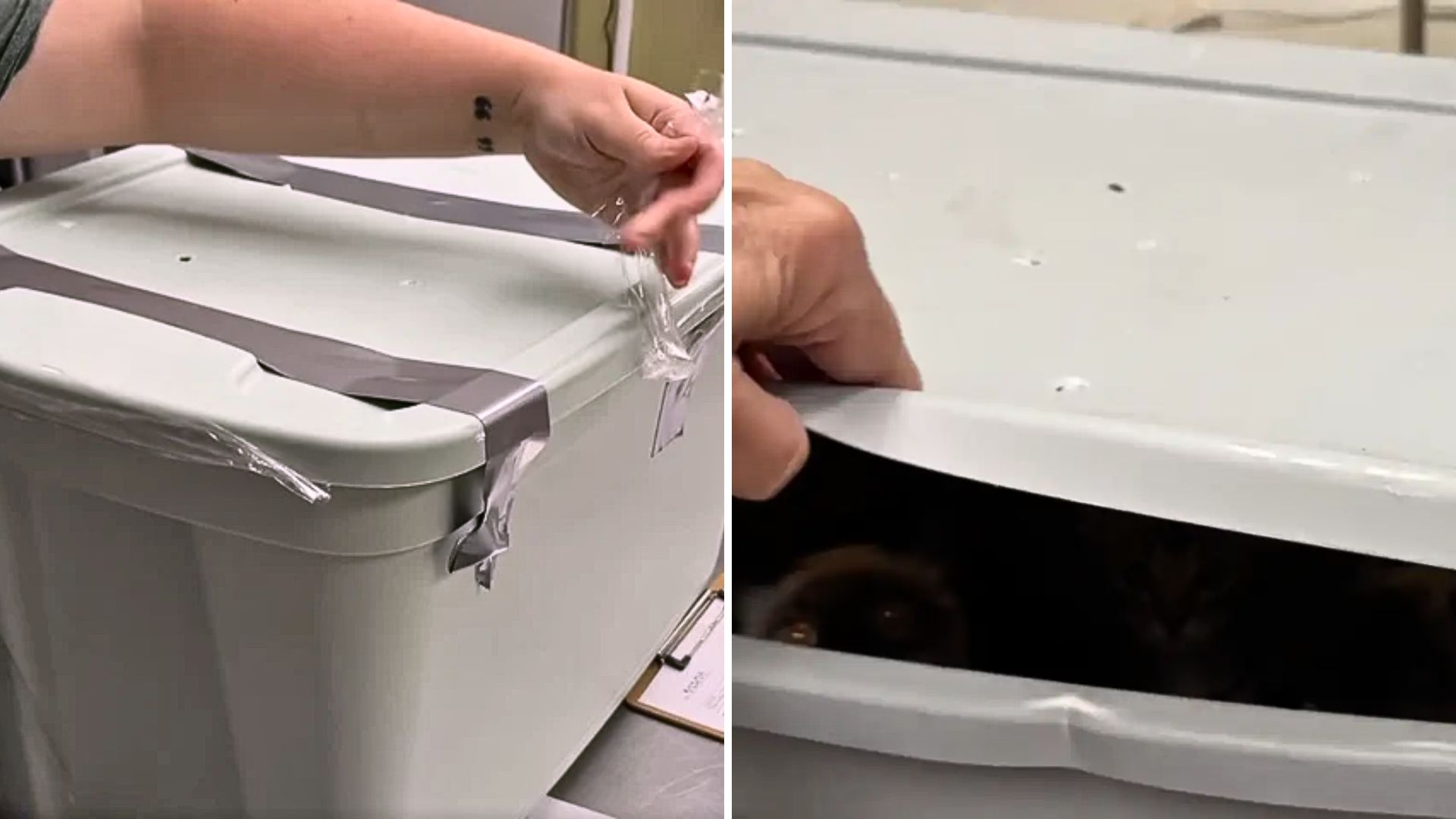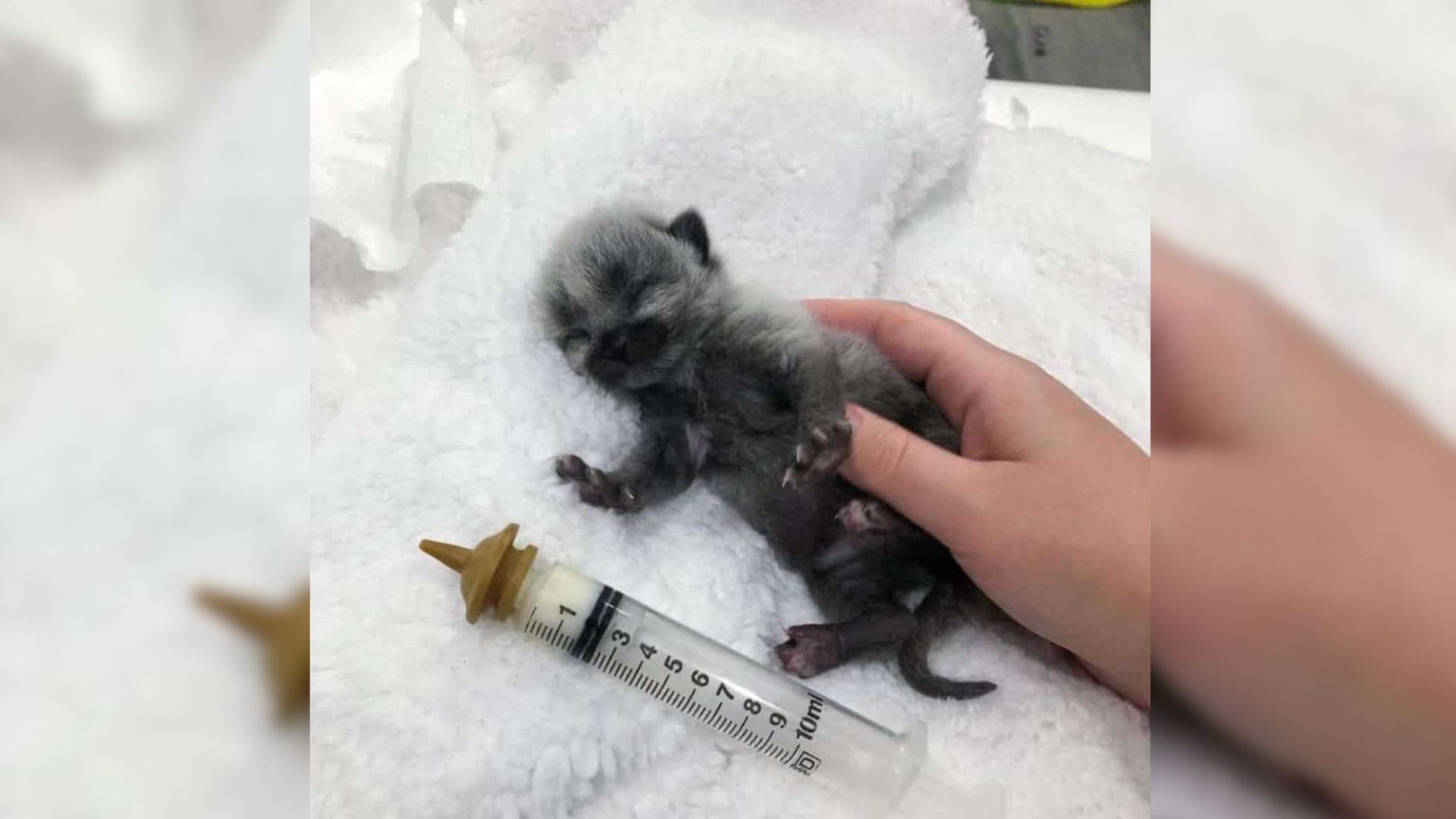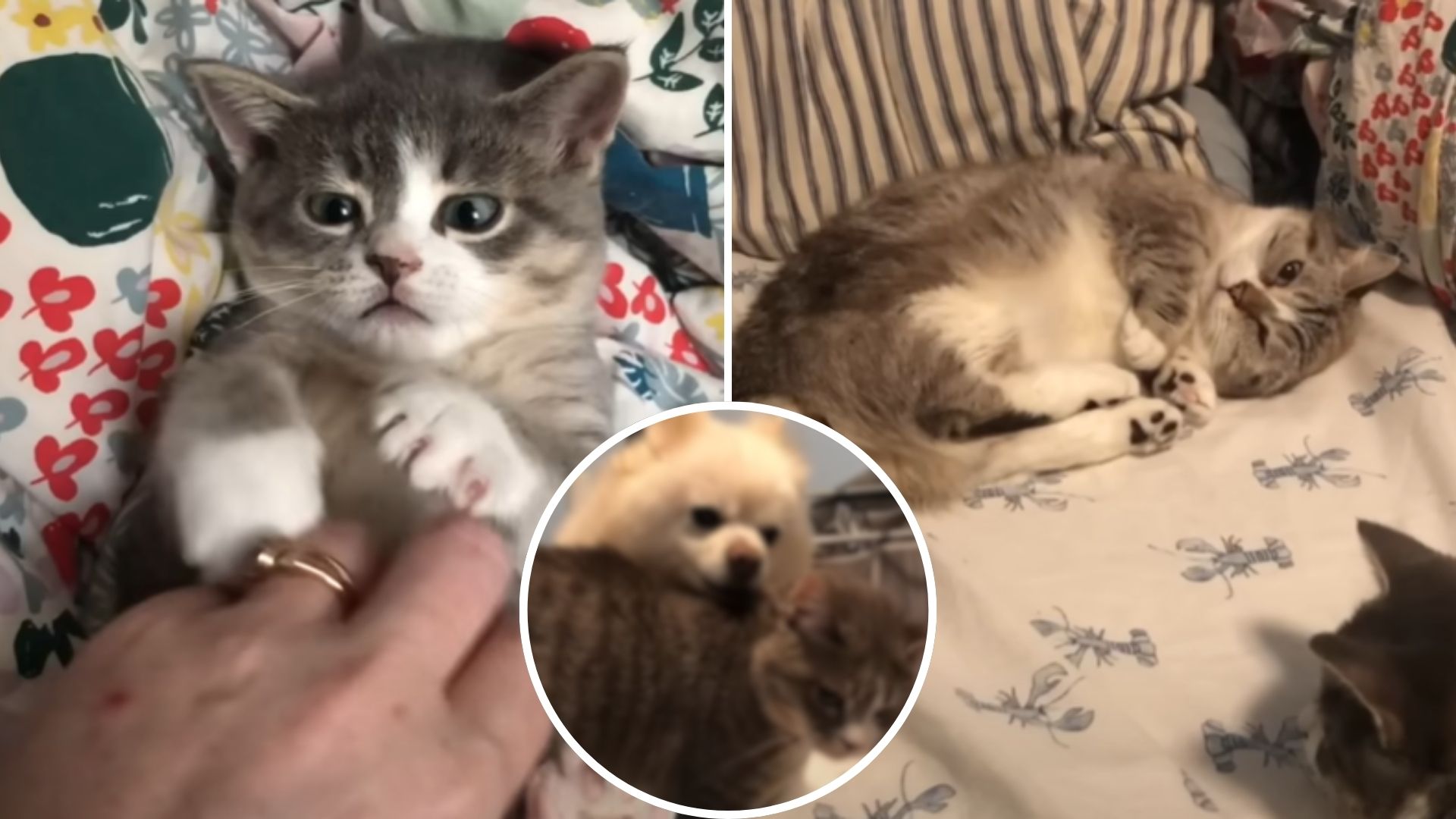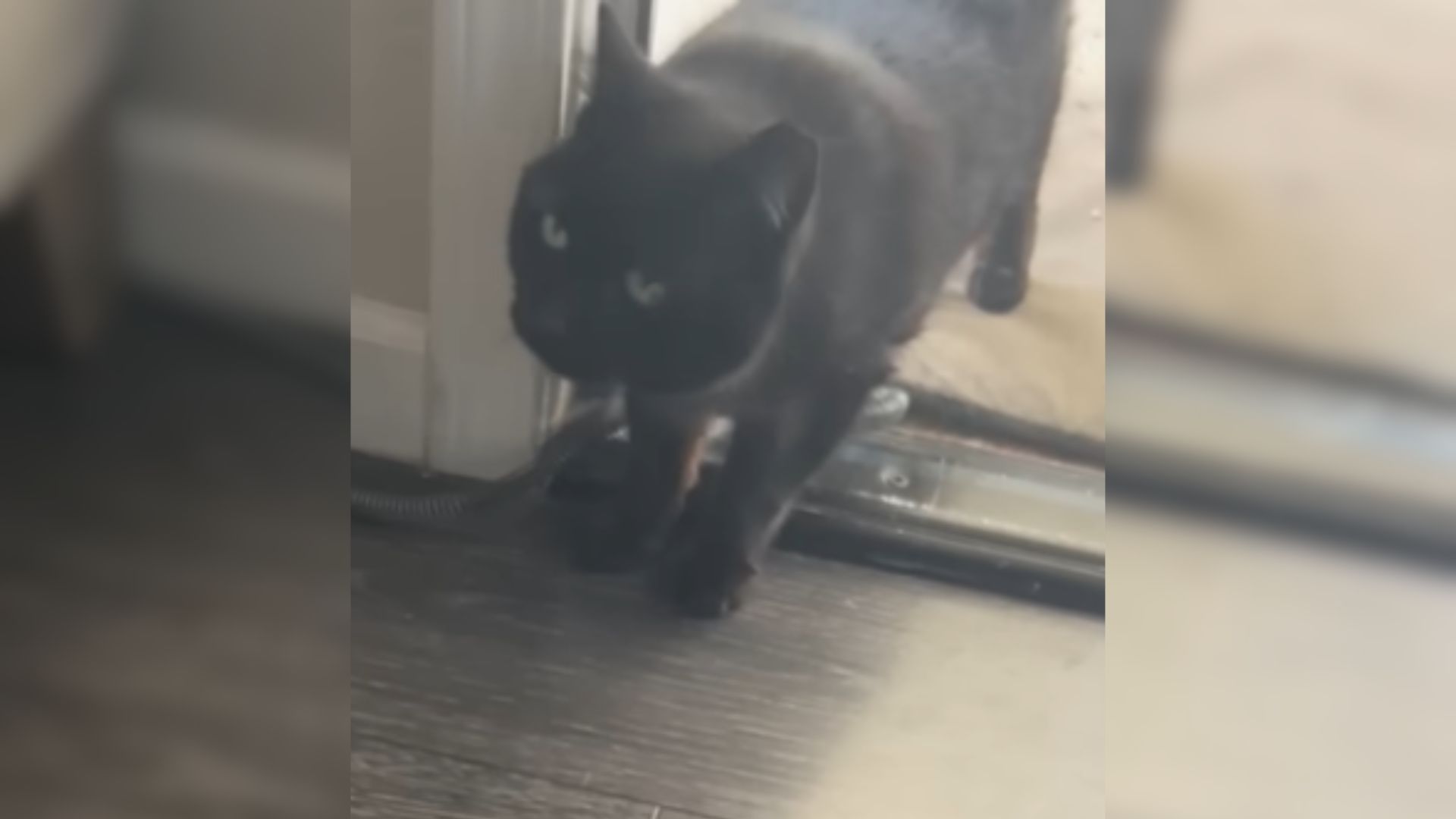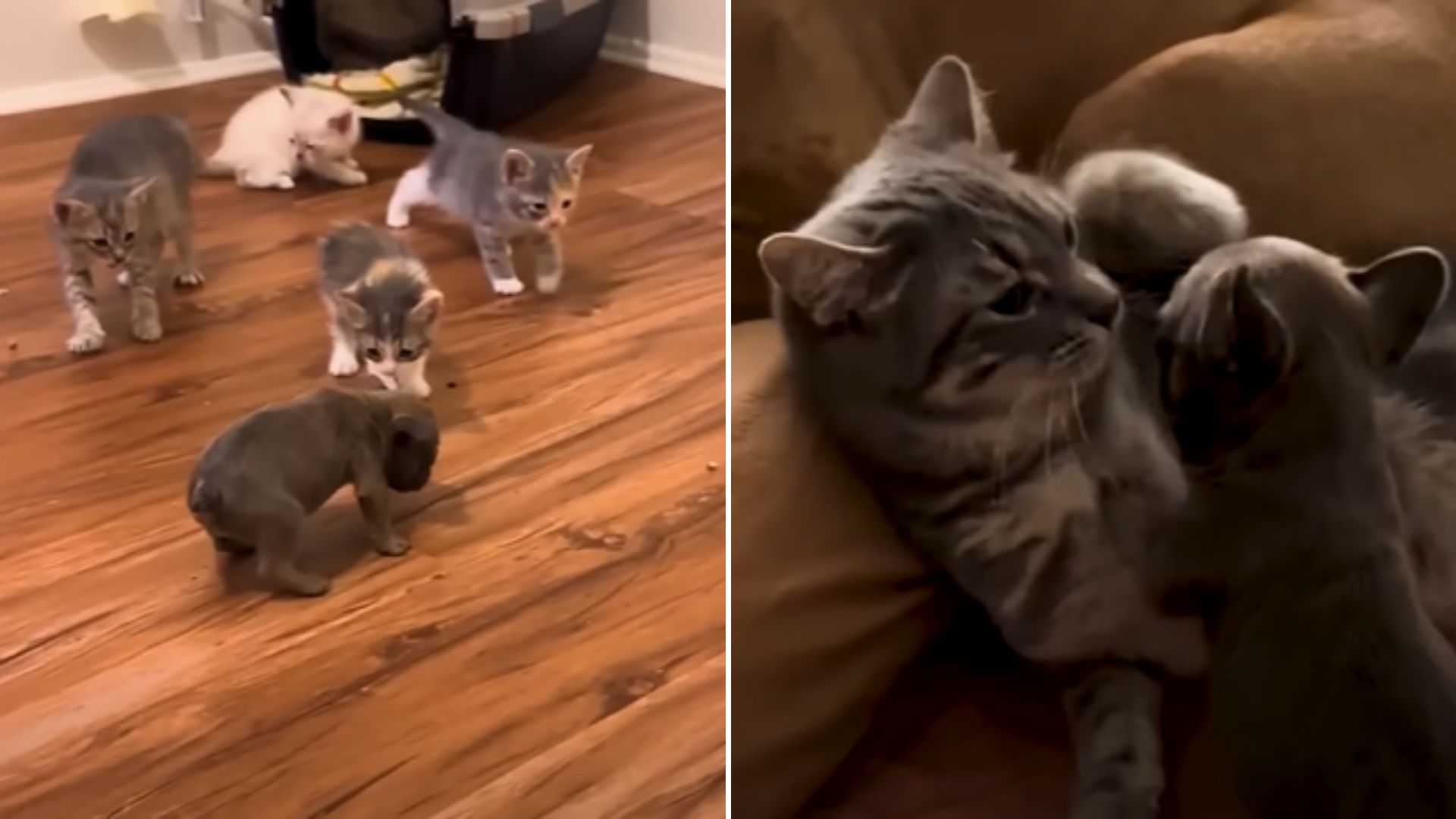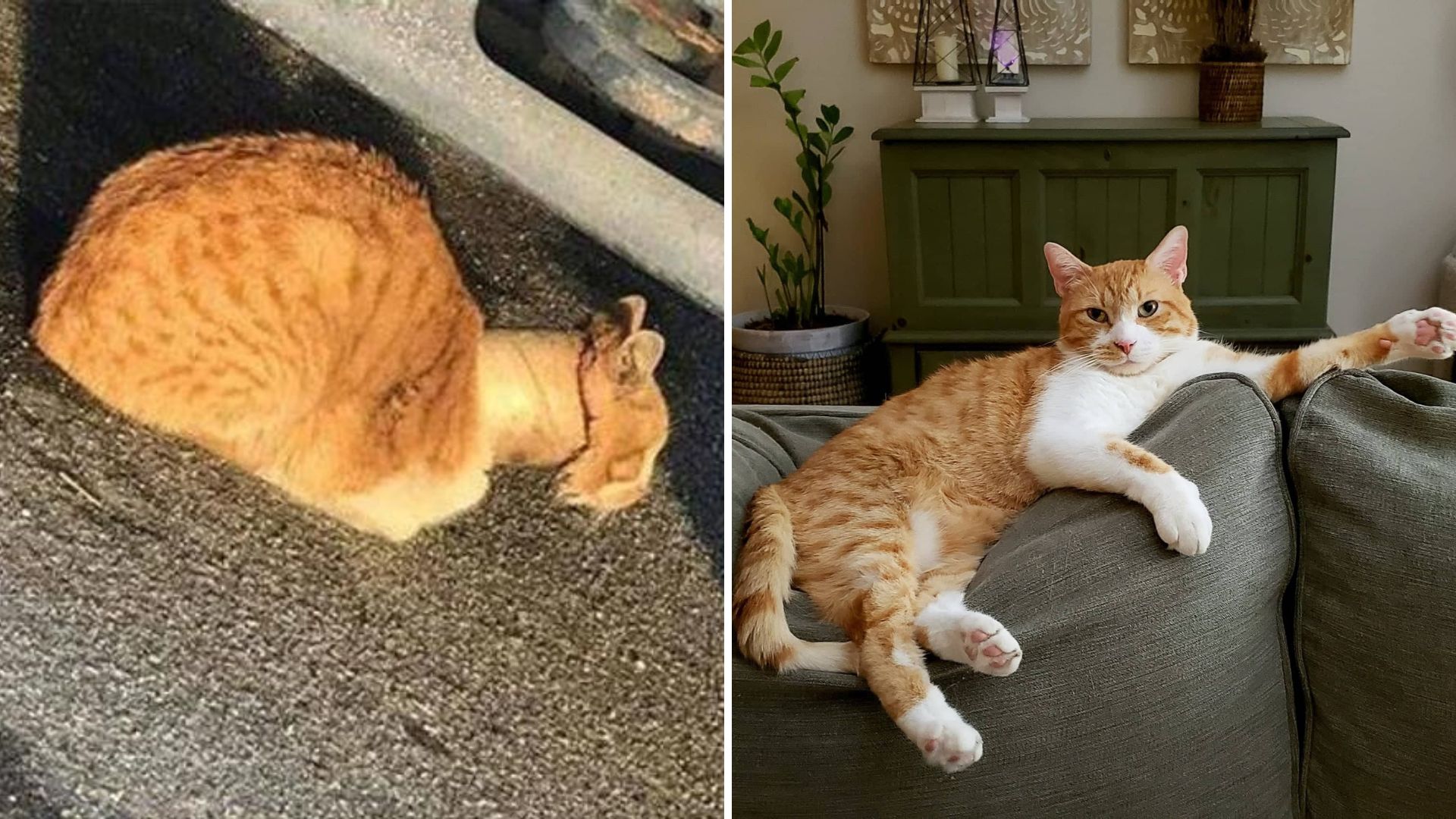In a truly heartbreaking situation, a mother cat’s deep grief has led her to prevent human contact with her poor kittens. Tragically, she has already experienced the loss of her previous litter, causing her to guard and protect her current kittens with unwavering determination. In this article, we will explore the complex emotions and challenges this grieving mother cat faces, highlighting the importance of empathy and understanding in such delicate circumstances.
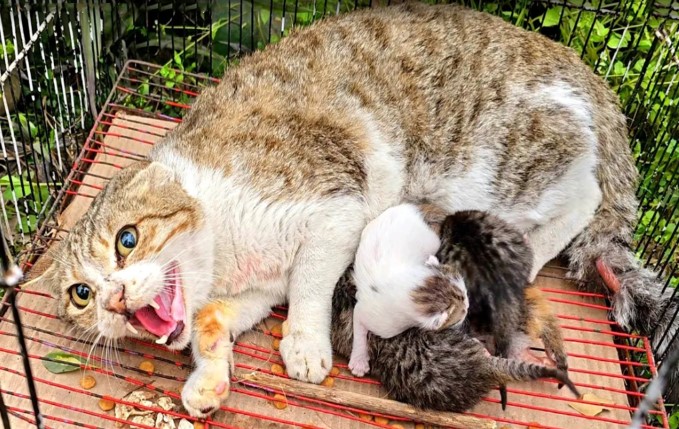
The mother cat’s refusal to allow human touch stems from an unimaginable pain— the loss of her previous litter. Like any loving mother, she experienced the joy and hope of nurturing her kittens, only to endure the devastating loss that left her heartbroken. This profound grief now manifests as a protective barrier between her and the outside world.
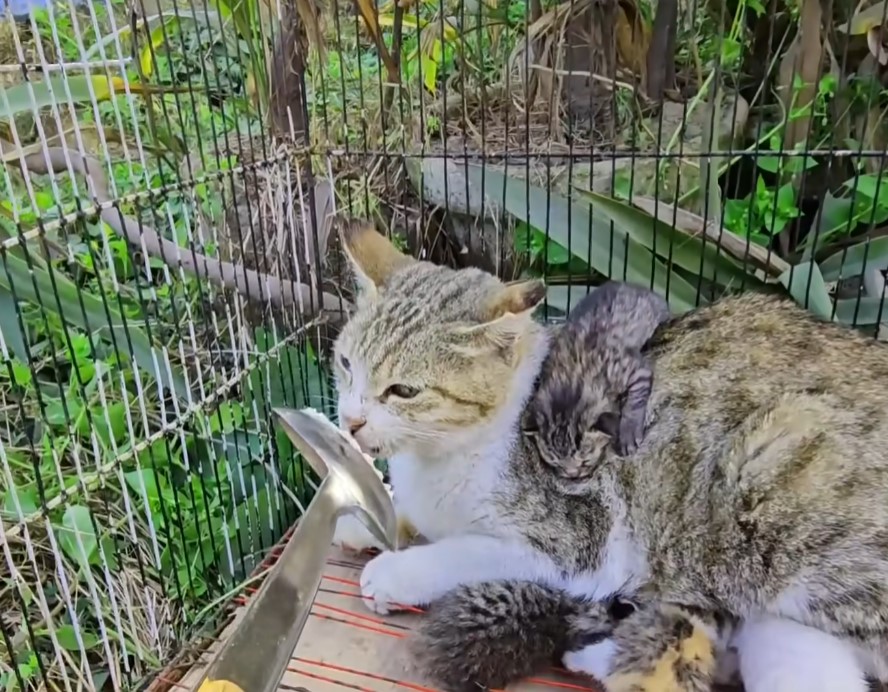
The mother cat’s instinct to shield her current litter from potential harm is intensified by the trauma of her past. She perceives any potential threat, including human contact, as a danger to the fragile bonds she has formed with her surviving kittens. Her actions, though seemingly standoffish, stem from a place of fierce protection and an overwhelming desire to prevent further heartache.

Rebuilding trust with a grieving mother cat requires patience and understanding. It is essential to respect her boundaries and allow her the space she needs to process her grief. Slowly, through consistent presence and gentle interactions, it may be possible to earn her trust and gently introduce the notion that not all human contact is a threat.
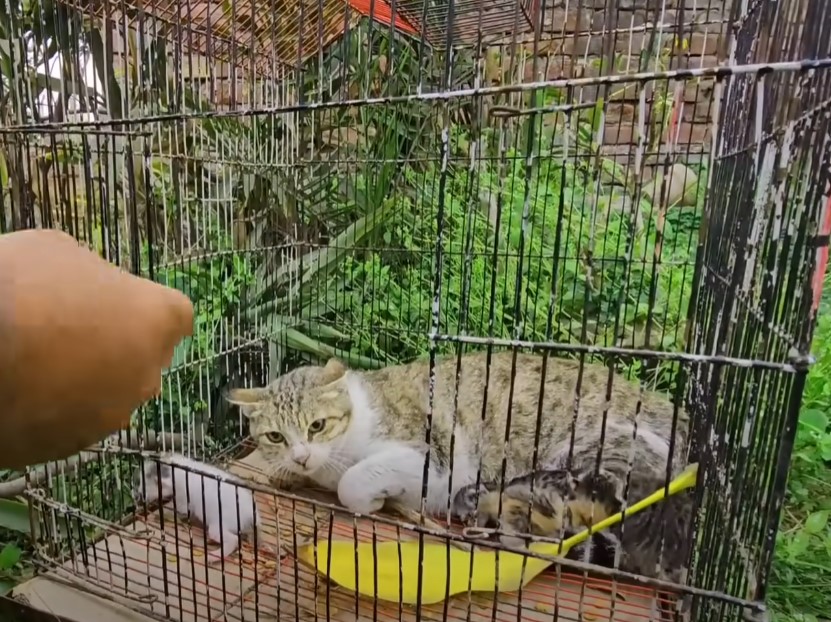
Empathy plays a crucial role in supporting a mother cat through this difficult time. Recognizing and acknowledging her pain allows us to approach her with compassion and sensitivity. By putting ourselves in her paws, we can better understand her protective instincts and the deep love she has for her surviving kittens.

Creating a safe and nurturing environment is vital for a grieving mother cat and her kittens. Offering a secluded space where she can feel secure and in control helps alleviate her anxiety. Providing ample food, water, and a comfortable nesting area gives her the resources she needs to care for and nurture her remaining kittens.
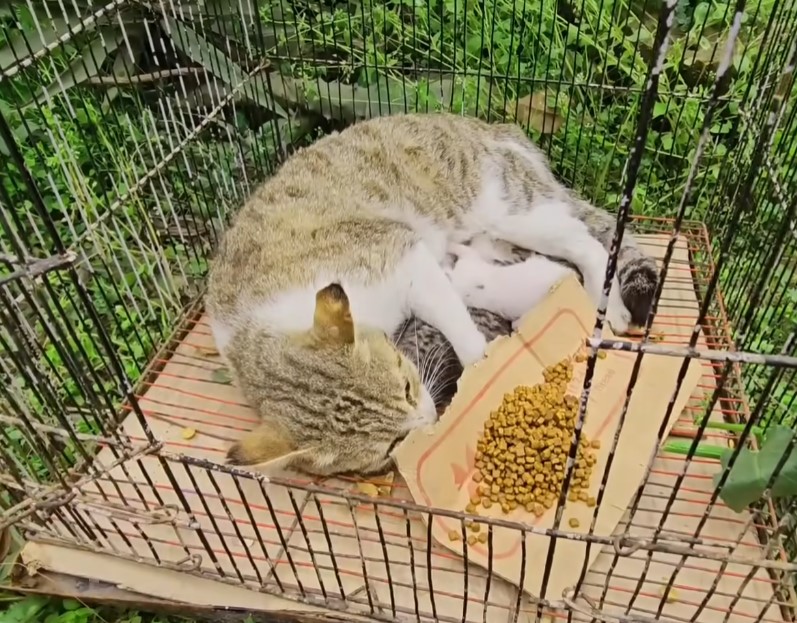
In more challenging cases, seeking the assistance of a veterinarian or an animal behaviorist can provide valuable insights and guidance. These professionals can evaluate the mother cat’s emotional state, offer strategies for building trust, and provide advice on creating a supportive environment for her and her kittens.

Grief does not fade quickly, and the healing process for a mother cat may take time. As she gradually learns to trust again, she may begin to accept human presence and even allow gentle interactions with her kittens. Patience, consistency, and unwavering support are key to her long-term healing and the re-establishment of a loving bond.
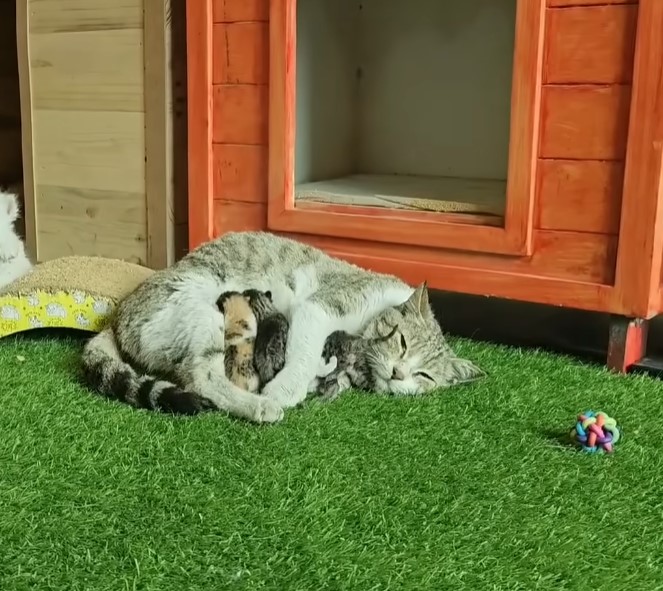
The story of this grieving mother cat serves as a reminder of the emotional depth and resilience of animals. It highlights the need for increased awareness and empathy towards their experiences of loss and grief. By sharing this story, we can inspire others to approach animals with compassion, understanding, and the respect they deserve.
The mother cat’s refusal to let humans touch her poor kittens is a heartbreaking consequence of her profound grief and loss. Understanding the complexity of her emotions and offering unwavering support are essential in helping her navigate through this challenging time. By approaching her with empathy and patience, we can gradually rebuild trust and provide the nurturing environment she and her remaining kittens need. Let this story serve as a reminder to extend compassion not only to animals in grief but to all living beings who bear the weight of loss.
